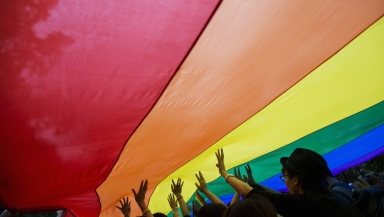
The Russian government has banned people with "personality disorders" from getting drivers licenses in what they consider an effort to make their streets safer.
Gays, transgendered persons, gambling addicts, cleptomaniacs, and fetishists are among those no longer able to legally drive in the country.
Prime Minister Dmitry Medvedev signed the order into law on December 29. While Professional Drivers Union head Alexander Kotov called the law too strict for non-professional drivers, he supported tougher restrictions for those who drive for a living.
"We have too many deaths on the road, and I believe toughening medical requirements for applicants is fully justified," he said.
The Association of Russian Lawyers for Human Rights called the new law - which also affects amputees and persons under 4'11" - "discriminatory," and said it would seek support from international human rights organisations in protesting the order.
The Association also planned to seek clarification from the Russian Constitutional Court regarding what is considered a "personality disorder."
Russian psychiatric expert Mikhail Strakhov said the law is too vague, and there are personality disorders that would not preclude a person from operating a vehicle safely.
Valery Evtushenko of the Russian Psychiatric Association also voiced concerns over the restriction to the BBC Russian service. Evtushenko postulated that Russians may be less likely to seek medical help for personality disorders for fear that they may lose their driver's license.
The Russian government has been criticised for considering homosexuality a mental disorder, and arresting LGBT activists for protesting the country's so-called "gay propaganda" law.
In 2013, Russian President Vladimir Putin signed a law banning "propaganda" targeting minors that is "aimed at creating nontraditional sexual attitudes, makes nontraditional sexual relations attractive, equates the social value of traditional and nontraditional sexual relations, or creates an interest in nontraditional sexual relations."













